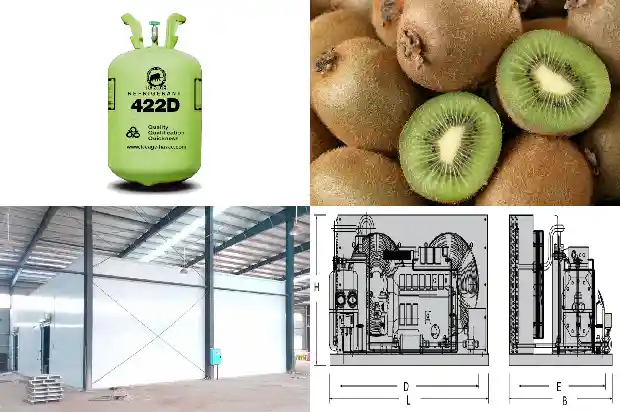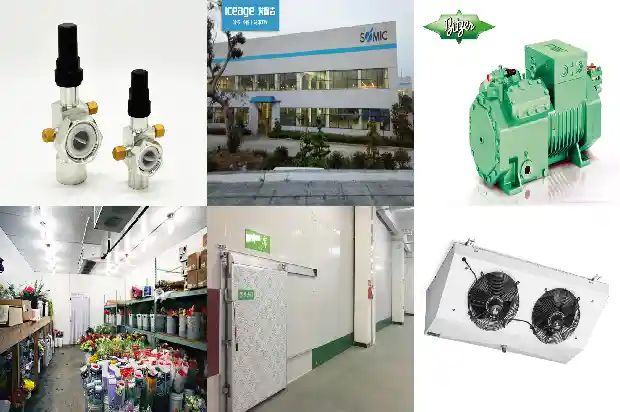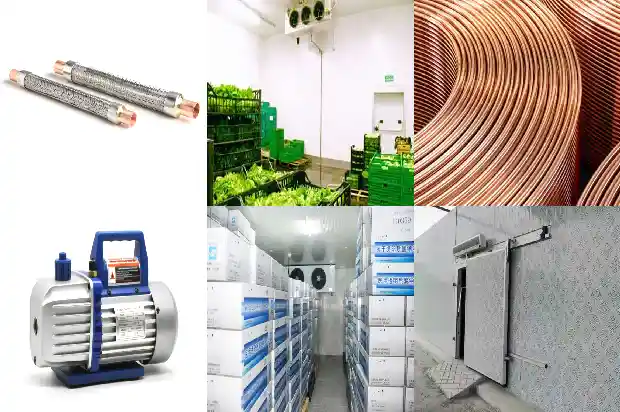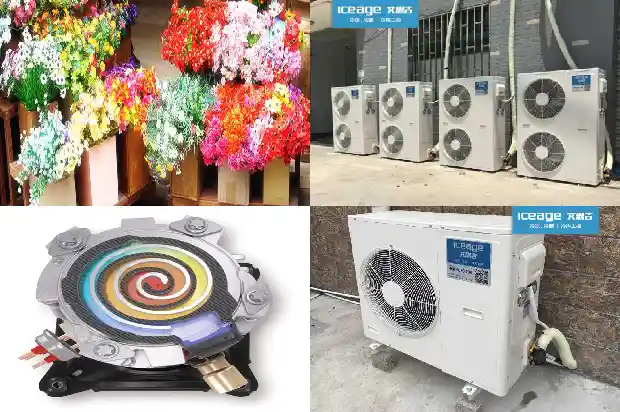Industrial screw water chiller working principle
2024-08-30
Working Principle of Chiller
Industrial chillers are composed of three interconnected systems:
Industrial chillers are composed of three interconnected systems:
- Refrigerant circulation system;
- Water circulation system;
- Electrical automatic control system.
- Refrigerant circulation system
The liquid refrigerant in the evaporator absorbs heat from the water and begins to evaporate. After the liquid refrigerant is completely evaporated and turns into a gaseous state, it is sucked in and compressed by the compressor. The gaseous refrigerant absorbs heat through the condenser and condenses into a liquid. After being throttled by a thermal expansion valve (or capillary tube), it becomes a low-temperature and low-pressure refrigerant and enters the evaporator to complete the refrigerant circulation process.
Compressor
The compressor is the core component in the refrigeration system. Its function is to convert the input electrical energy into mechanical energy and compress the refrigerant.
Condenser
In the refrigeration process, the condenser plays a role in outputting thermal energy and condensing the refrigerant. After the high-pressure superheated vapor discharged from the refrigeration compressor enters the condenser, the heat absorbed by it from the evaporator and the refrigeration compressor as well as in the pipeline is transferred to the surrounding medium (water or air) and taken away; the refrigerant high-pressure superheated vapor re-condenses into a liquid.
Receiver
The receiver is installed after the condenser and is directly connected to the drain pipe of the condenser. The refrigerant liquid of the condenser should flow into the receiver unimpeded. In this way, the cooling area of the condenser can be fully utilized. On the other hand, when the heat load of the evaporator changes, the demand for refrigerant liquid also changes. At that time, the receiver plays a role in adjusting and storing the refrigerant.
Drying filter
In the refrigeration cycle, it is necessary to prevent moisture and contaminants (oil stains, iron filings, copper filings) from entering. If the moisture in the system is not completely removed, when the refrigerant passes through the throttle valve (thermal expansion valve or capillary tube), sometimes the moisture will solidify into ice due to the drop in pressure and temperature, blocking the channel and affecting the normal operation of the refrigeration device.
Thermal expansion valve
The thermal expansion valve is both a flow regulating valve and a throttle valve in the refrigeration system. It is installed between the drying filter and the evaporator in the refrigeration equipment. Its temperature sensing bulb is wrapped at the outlet of the evaporator. Its main function is to make the high-pressure and normal temperature refrigerant liquid throttle and reduce pressure when flowing through the thermal expansion valve, and turn into low-temperature and low-pressure refrigerant wet vapor (enter the evaporator and absorb heat by vaporization in the evaporator to achieve the purpose of refrigeration and cooling).
Evaporator
The evaporator is a heat exchange device that relies on the evaporation of refrigerant liquid to absorb the heat of the cooled medium.
Its function in the refrigeration system is to absorb heat (or output cooling capacity). In order to ensure that the evaporation process can be carried out stably and continuously, the evaporated gas must be continuously pumped away by the refrigeration compressor to maintain a certain evaporation pressure.
Refrigerant
R22/R134A is used as the refrigerant. Its function is to carry heat and achieve heat absorption and release when the state changes.
- Water circulation system
The water circulation system is that the water pump draws water from the water tank to the equipment that the user needs to cool. After the chilled water takes away the heat, the temperature rises and then returns to the chilled water tank.
Chilled water circulation system
This part is composed of a chilled water pump, indoor fan and chilled water pipeline.
The low-temperature chilled water flowing out of the evaporator of the main unit is pressurized by the chilled water pump and sent into the chilled water pipeline (outlet water), enters the room for heat exchange, takes away the heat in the room, and finally returns to the evaporator of the main unit (return water). The indoor fan is used to blow air through the chilled water pipeline to reduce the air temperature and accelerate the indoor heat exchange.
Cooling water circulation part
This part is composed of a cooling water pump, cooling water pipeline, cooling tower and condenser. While the chilled water circulation system conducts indoor heat exchange, it will inevitably take away a large amount of thermal energy indoors. This thermal energy is transferred to the cooling water through the refrigerant in the main unit, raising the temperature of the cooling water. The cooling water pump presses the heated cooling water into the cooling tower (outlet water), makes it exchange heat with the atmosphere, and then sends it back to the condenser of the main unit after reducing the temperature. - Electrical automatic control system
The electrical automatic control system includes the power supply part and the automatic control part. The power supply part supplies power to the compressor, fan, water pump, etc.
through the contactor.
The automatic control part includes a thermostat, pressure protection, time delay device, relay, overload protection, etc. which are combined with each other to achieve functions such as automatic start and stop according to the water temperature and protection.
Related Articles
- Principles, Components and Heat Recovery of Modular Units
- What are Refrigeration Equipment? What's the Principle of Chillers?
- What Is the Working Principle of Refrigeration Equipment?
- Operating Principle and Standard Installation Steps of Multi - split Systems in Refrigerant Air - conditioning Systems
- Working Principle of AC Inverter and DC Inverter Air Conditioners
- What's the principle and function of air energy?
- Principles of Refrigeration Systems and Functions of Components Explained
- Working Principle and Control Logic of Centrifugal Compressor
- Function and Working Principle of Subcooler
- Fault Analysis of Working Principle of Screw Chiller Unit
- Working Principle of Economizer for Refrigeration Compressor
- Principle of Multiple Storages in One Unit and Evaporation Pressure Regulation Methods
- Principle and Refrigeration Process of Piston Refrigeration Compressor
- Characteristics and principles of air-cooled and water-cooled units
- Air-source heat pump: Principle of cooling and heating in one machine
- Water Cooled Unit Principle of Operation and Parameter Failure Analysis
- The principle of air conditioning refrigeration
- Maintenance Strategies for the Working Cycle and Electrical Automatic Control of Chillers
